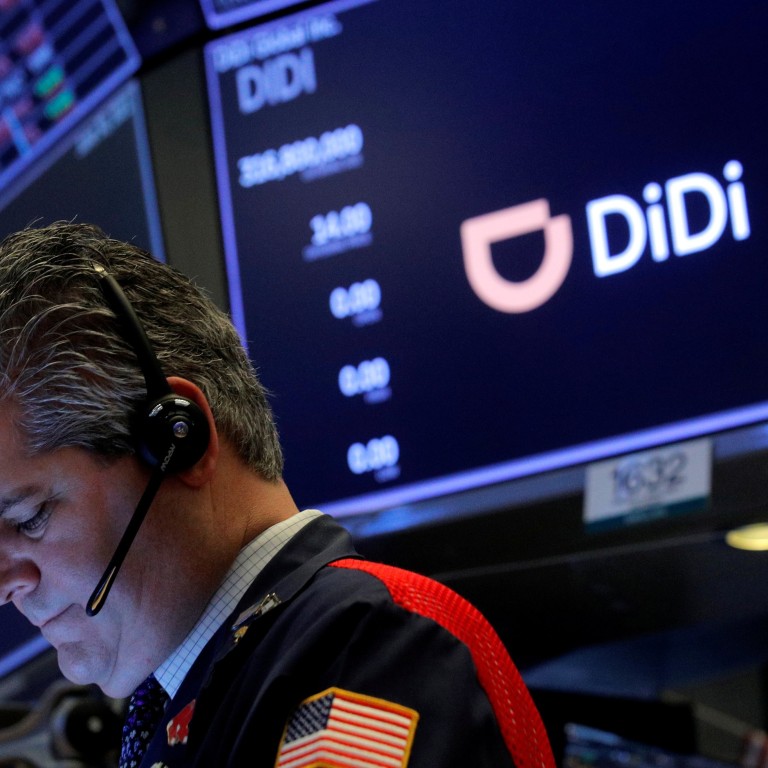
Didi in talks for a second-quarter IPO in Hong Kong on its way to delisting from New York, sources say
- Didi’s bankers are now busy finding a solution to make sure the company can meet with all the listing requirement in Hong Kong
- Hong Kong government and the local bourse has rolled out red carpet to welcome US listed mainland firms to list here
Depending on market conditions, the Beijing-based company may list in Hong Kong in the second quarter, the sources said, adding that the financial terms of the proposed listing are still being worked on. HKEX’s spokesman declined to comment on individual cases.
Hong Kong’s government and the local burse have rolled out the red carpet to welcome US-listed Chinese companies to raise capital, offering a series of incentives and regulatory reforms starting on January 1.
“With mainland companies seeking to grow and still hoping to explore international financing in the face of increasing regulatory uncertainty in the US, it is likely that we will see more China concept stocks return from the overseas market,” Hong Kong’s Financial Secretary Paul Chan Mo-po said in a speech to the 15th Asian Financial Forum this week. “We are actively making preparations for that.”
Didi’s listing would also be a big boost to the HKEX, whose IPO tally shrank 17 per cent in 2021, its first decline since 2017. Hong Kong was the world’s top IPO destination in seven of the previous 12 years.
Didi’s capitalisation shrank to US$23.6 billion as of the close of trading on Tuesday in New York. Didi’s NYSE listing was handled by a syndicate of banks comprising Goldman Sachs, Morgan Stanley, JPMorgan & Chase, Bank Of America, Barclays, China Renaissance, China International Capital Corporation (CICC), Citi, HSBC, UBS, and Guotai Junan.
The Cyberspace Administration of China in July launched its investigation into Didi’s operations, which has yet to turn out an official conclusion. The investigators installed at Didi’s Beijing headquarters had not been seen in the last two months, according to employees.
Didi reported a 30.4 billion yuan (US$4.77 billion) loss and a 1.7 per cent decline in revenue to 42.7 billion yuan in the third quarter of 2021.
With additional reporting by Coco Feng in Beijing


